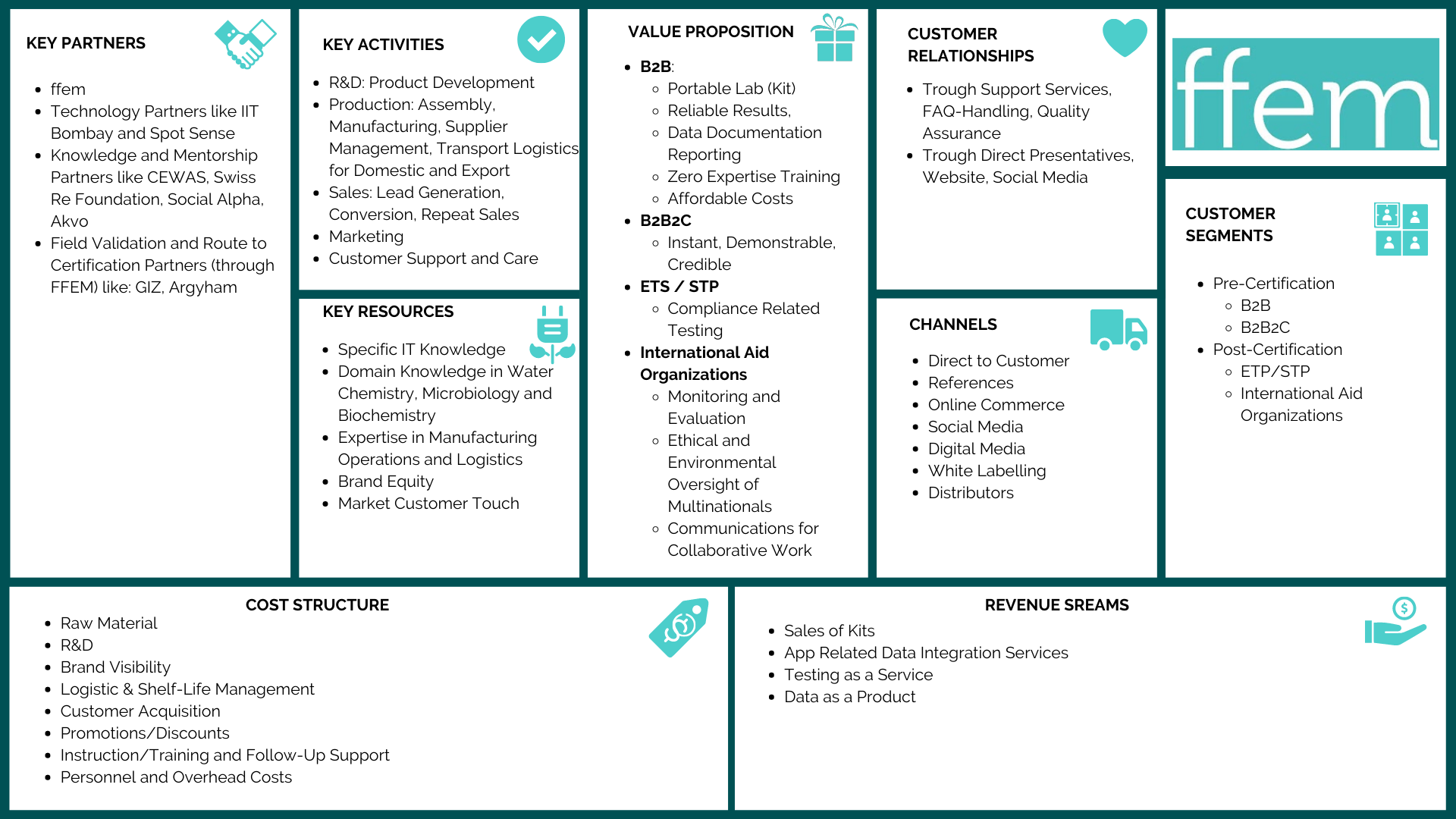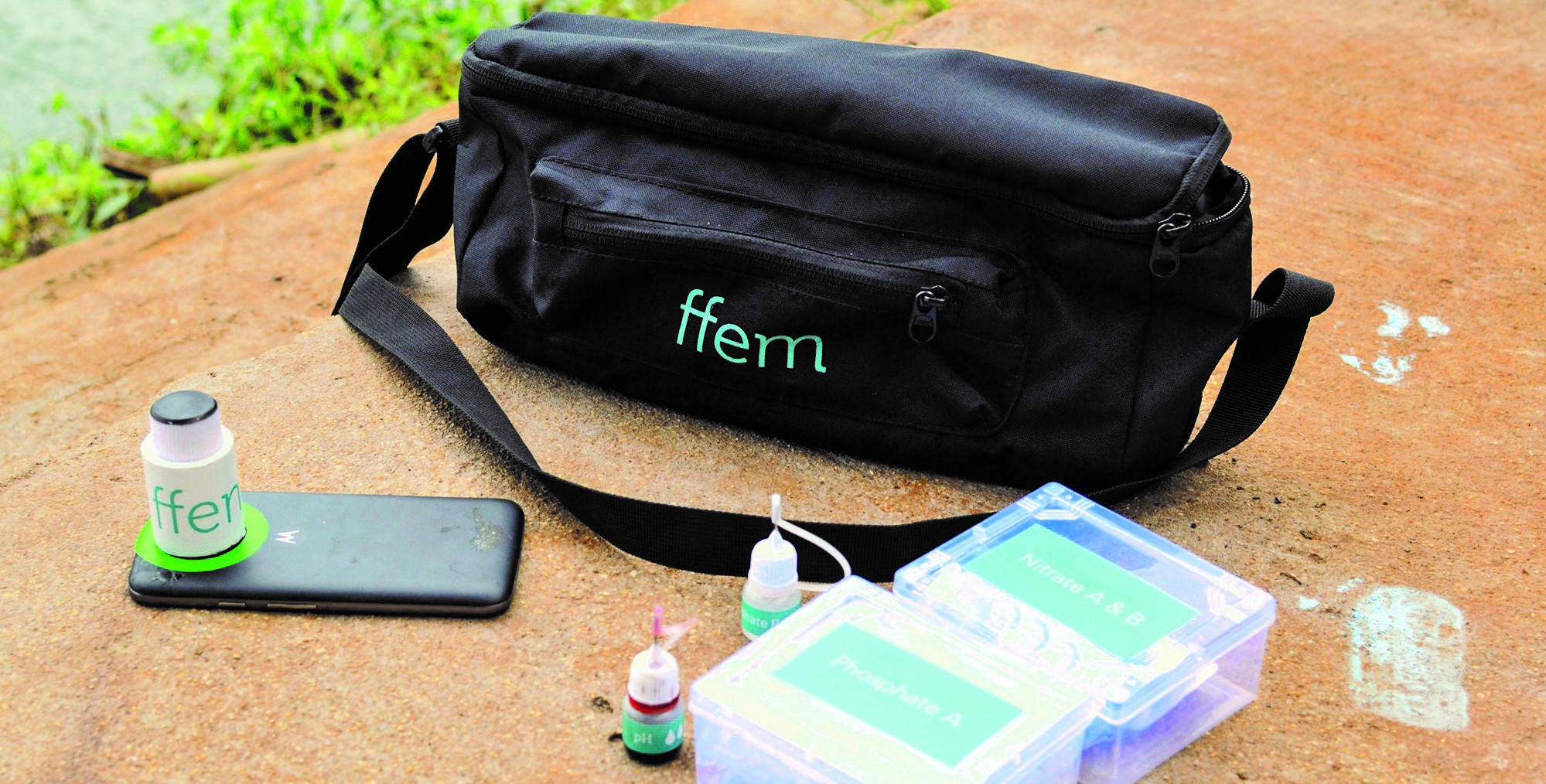"We contribute to safe water supply for people in India by providing affordable water quality monitoring. With our testing kits, we improve processes, operations and access to clean drinking water" (Samuel Rajkumar, ffem)
ffem – Easy-to-use and reliable testing kits for water and soil
Foundation for Environmental Monitoring (ffem) is a non-profit company based in Bangalore, India. It develops and commercialises low-cost, open-source and smartphone-integrated testing kits for monitoring drinking water quality, water in lakes and rivers as well as soil macronutrients.
Challenge
In India, 75 million people are exposed to fluoride and arsenic in their drinking water, and another 150,000 die every year due to faecal contamination. WaterAid published a report stating that each year 73 million working days are lost to waterborne diseases, costing the economy an estimated USD 600 million. The simplest solution is often to simply drink from clean sources, but there are no accurate diagnostic tools for users to identify such sources in the field. Generally, there is a lack of accurate water quality data in India, and no means to collect it. Community-level water purification systems require frequent monitoring. Field testing kits do exist but are often unreliable. At present the only dependable testing method is to send water samples to government labs that exist in every district. However, none of these solutions provide a simplified way to collect and manage the data, a process that is prone to errors.
Entrepreneurial Approach and Innovation
ffem develops tools that significantly reduce the cost involved in implementing water supply infrastructure projects. Their main products are low-cost smartphone-integrated water testing tools that can test a range of parameters for water quality and significantly improve the quality and ease of collection of water point data. ffem mainly targets organisations working in the water, sanitation and hygiene (WASH) sector, particularly in water supply and quality management. The users would be field staff with little to no formal training in chemistry and data collection, and the tools are designed with this fact in mind. ffem is seeking to set up micro-entrepreneur models whereby local contacts would be offered ffem's kits for purchase to provide testing-as-a-service on a local scale, either through a rental or subsidised model. ffem plans to set up a public platform for drinking water quality, which would allow more organisations to connect within the sector while also enabling better-quality data to be shared across sectors.
ffem Business Model

Achievements
This venture started with a group of friends who wanted to use their skills and know-how to address waterborne health issues in India, thus improving the livelihoods in local communities. Over time their products and solutions underwent extensive testing and sophistication. In 2019 approximately 1,000 products were brought to market, which is more than twice as many as in the previous year. With the support of the Swiss Re Foundation, the business model as well as risks and opportunities were critically analysed and refined. As part of this process, a new for-profit entity, Heuristic Devices, was set up in December 2019. The organisational structure and processes are now under review, and the necessary adjustments are being implemented in preparation to scale its business while adhering to ffem’s open-source philosophy.
Success factors
There is a number of factors contributing to businesses long-term success. This business case has been honoured by the International ReSource Award program mainly due to the following success factors:
| Leadership skills | Important leadership skills are: | Ffem particularly stands out for the strong leadership skills and decisiveness of founder Samuel Rajkumar. |
| Access to markets | Ffem is particularly successful due to its active and agile market development because they have a comprehensive understanding of customer needs. |
Apart from the success factors mentioned above, this start-up has been recognized by the Swiss Re Foundation because of its planning and review expertise and technical operation skills.

